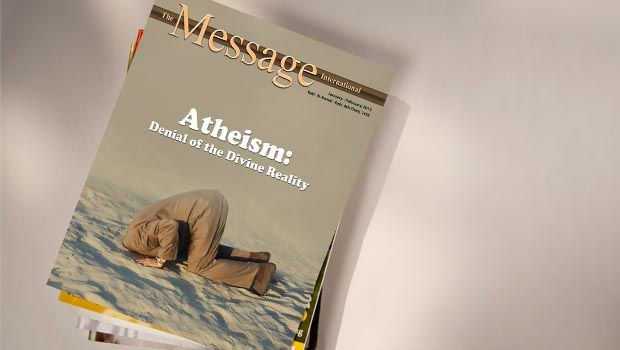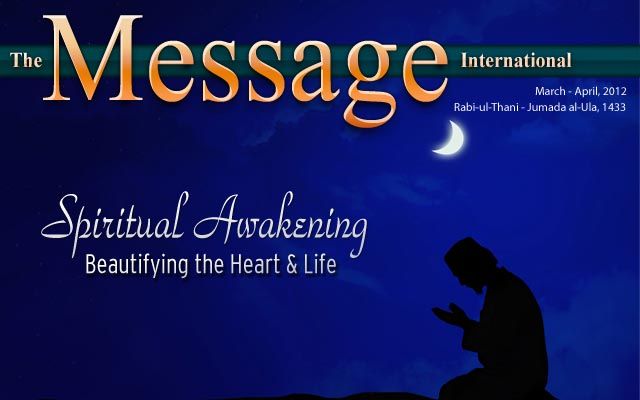During the 1980s, longtime activist Rev. Jesse Jackson, Sr. popularized the expression “misery index” in response to President Ronald Reagan’s domestic fiscal philosophy of trickle-down economics and the resulting suffering and deprivation of America’s lower and middle classes. Economist Arthur Okun, an advisor to President Lyndon Johnson, is credited with coining the expression in the 1960s as a barometer of the nation’s economic well-being when its unemployment and inflation rates were added together. Whereas inflation and unemployment rates are undoubtedly critical indicators of the state of a country’s financial health, other equally significant factors must be considered in order to understand the degree to which global suffering is not just a byproduct of errant economic policies or predictable cycles, but a direct result of manufactured misery by governments and transnational corporations being ideologically driven by relatively anonymous, small groups of unfettered capitalist found in think tanks and other policy institutes.
Former US Supreme Court Justice Lewis Powell wrote a memorandum in 1970 to the National Chamber of Commerce that said that “all of our best students are becoming anti-business because of the Vietnam War” and that “we need to do something about it.” Powell advised that the Chamber of Commerce recruit wealthy conservatives for professorships and set up institutions on and off campus where intellectuals could write books from a conservative perspective. Although conservative think tanks like the Hoover Institute and the American Enterprise Institute existed before Powell’s and the Chamber’s initiatives, a virtual explosion of conservative policy institutes that influence government economic, military, and social policies have since come into existence. Federally Funded Research and Development Centers like the American Council for Capital Formation and the RAND Corporation along with privately funded think tanks, especially The Project for the New American Century, influence U.S. political leaders with not only neo-conservative formulated domestic and foreign policy, but provide personnel directly from their ranks to staff major Cabinet and Executive level positions who directly implement these groups’ “recommendations.”
Identifying Poverty
The United Nations World Summit on Social Development has defined poverty as, “A condition characterized by severe deprivation of basic human needs, including water, sanitation facilities, health, shelter, education, and information.” Poverty levels are usually set by individual nations, although Developing Nations generally agree that $1.00 a day is required in their countries to meet the necessary consumption amount for proper living. The World Bank sets its absolute poverty level for Developing Nations for $1.25 a day (U.S.) and $2.00 a day in relatively more developed nations. Various UN reports establish the estimated number of the world’s people living in absolute poverty, less than $1.25 (U.S.) a day, as more than three billion people, or almost half of the world’s population (6,800,000,000, United Nations, 2009). World Bank and United Nations statistics reveal that one of every two children in the world, one billion, lives in absolute poverty; 640 million children live without adequate shelter; 400 million children have no access to clean water; and 24,000 children a day die from preventable diseases.
Help lower the
misery index of our neighbors on this planet. Think globally,
but act locally
The reasons for the globalization and institutionalization of poverty have been camouflaged by the mass media and inserted into the public conscience with expressions such as “Corruption in the Developing World,” “Unmotivated Work Forces,” and “Failure to Democratize.” While government corruption, a disinterested labor pool, or an autocratic political system may contribute to a nation’s collective poverty, these factors provide no easy explanations why the wealthiest 20 percent of the world’s population account for 76 percent of private consumption, while the world’s poorest fifth account for 1.5 percent of private consumption. Neither does it explain why the GDP (gross national product) of 41 of the most heavily indebted nations in the world have less wealth than seven of the world’s richest people. Or why 45 percent of all meat and fish, 58 percent of total energy, and 74 percent of all telephone lines are consumed or used by the richest fifth of the population.
Monopolistic Control
Perhaps the most astonishing aspect of this late 20th and early 21st century globalization of poverty phenomenon is that it is occurring in post-colonial environments during a period of technological advance. Arguably, the prototype for Western corporations’ government-sanctioned pillage and rape of the natural and human resources of less developed nations and subsequent impoverishing of indigenous populations was the East India Company. The company was established in England in the 17th century as a joint-stock company formed to pursue trade with the East Indies, primarily the Indian sub-continent and China. Initially concentrating on the trading of cotton, silk, tea, and opium, the East India Company evolved over the next two centuries to exert monopolistic control over not only the trade, but governance of India. Eventually, the company would directly rule India, become one of the strongest lobbyist forces with the British Parliament in history, and turn the local populations into a servile class to the British Empire and its interest.
UN reports establish the estimated number of the world’s people living in absolute poverty, less than $1.25 (U.S.) a day, as more than three billion people, or almost half of the world’s population
In the 20th century, the United Fruit Company approximated the monopolistic dominance that the East India Company had over India through its near-absolute control over the fruit plantations and trade, and governments of Central America, Ecuador, the Caribbean coast of Columbia, and the Caribbean islands. By developing and controlling extensive transportation networks, maintaining an efficient, ruthless monopoly of the fruit trade including exploitation of workers in its countries of operation, United Fruit, currently operating as Chiquita Brands International, eventually became the largest employer of workers in the Western Southern Hemisphere running operations as diverse as the postal system in Guatemala in the 1930s.
Capitalism as a Vulture
El Hajj Malik El Shabazz, Malcolm X, one of the most analytical Muslim minds of the 20th century, addressed the issue of global economic disparities and what he saw as a root cause when he said in 1964, “It is impossible for capitalism to survive, primarily because the system of capitalism needs some blood to suck. Capitalism used to be like an eagle, but now it’s more like a vulture. It used to be strong enough to go and suck anybody’s blood whether they were strong or not. But, now it has become more cowardly, like the vulture, and it can only suck the blood of the helpless. As the nations of the world free themselves, capitalism has fewer victims, less to suck, and it becomes weaker and weaker. It’s only a matter of time in my opinion before it will collapse completely.”
Whether one agrees or disagrees with Malcolm’s analysis of the imminent demise of the global, vulture-like expressions of capitalism as manifested in the behaviors of some transnational corporations, the reality is that some European and American-owned corporations are major purveyors of misery in the nations where they operate. Witness the revelations of the exploitation of child labor by U.S.-owned companies in Developing Nations as children as young as five years old, sometimes with their mothers and fathers, are forced to toil for less than subsistence wages in wretched conditions for 12 to 16 hours a day so that company profits can be maximized. Often governments in Latin America, South America, Africa, the Indian subcontinent, and Southeast Asia have their authority severely compromised due to the demands placed on them and their nations’ resources by these companies.
The GDP (gross national product) of 41 of the most heavily indebted nations in the world have less wealth than seven of the world’s richest people.
Throughout Africa and Latin and South America, transnational corporations support private armies, euphemistically called security teams, to defend their interests, including the wealth-producing natural resources that they are extrapolating through arrangements pressured from their host countries. Too often these private armies are able to impose their employers will onto the national agenda due to their superior organization, numbers, equipment, and political and even military support from their home countries.
Bringing “Relief” to Distressed Nations
Ironically, manufactured misery finds a home in Developing Nations through two agencies that were ostensibly designed to bring relief to financially distressed nations, the World Bank and the International Monetary Fund. Both groups were formed in a meeting of delegates from 44 nations in Bretton Woods, New Hampshire in 1944. Confusion existed even in the minds of some of the founders of the organizations over the difference in their missions. The basic difference between the groups seems to be that the World Bank, or International Bank for Reconstruction and Development, was designed as a “development institution that finances economic development in areas ravaged by the effects of natural disasters, wars, or catastrophic government actions.” The International Monetary Fund is charged with “maintaining cooperative relationships between global institutions and seeking to maintain an orderly system of payments and receipts between nations.” Due to its preeminent military and financial influence in the world, the United States is unsurprisingly the dominate influence over both groups. Even though the groups stated goals are laudable, the practical implementation of their mission has been disastrous for Developing Nations for at least the last two decades. The IMF boasts that it “negotiates” not imposes policy on a country before it can receive assistance.
Nobel Prize winning economist Joseph Stiglitz, an Economics professor at Columbia University and former chief economist of the World Bank said of the groups, “The World Bank talks of assistance strategies for every poor nation using careful country by country investigations. However, the Bank’s investigation involves little more than close inspection of five-star hotels. It concludes with a meeting with a begging finance minister, who is handed a ‘restructuring agreement’ pre-drafted for ‘voluntary signature.’ Officially, of course, the IMF doesn’t impose anything. It negotiates the conditions for receiving aid. But all the power in the negotiations is on one side—the IMF’s—and the fund rarely allows sufficient time for broad consensus-building or even widespread consultations with either parliaments or civil society. Sometimes the IMF dispenses with the pretense of openness altogether and negotiates secret covenants.”
According to economist Robin Hanhel, “To receive assistance from the IMF or World Bank, all troubled Developing Nations must agree to the following austerity measures that guarantee that the nations will be worse off, especially in the area of social services, than before receiving the help:
Monetary austerity. Tighten up the money supply to increase internal interest rates to whatever heights needed to stabilize the value of the local currency
Fiscal austerity. Increase tax collections and reduce government spending dramatically
Privatization. Sell off public enterprises to the private sector
Financial Liberalization. Remove restrictions on the inflow and outflow of international capital as well as restrictions on what foreign businesses and banks are allowed to buy, own, and operate
“Only when governments sign this “structural adjustment agreement” does the IMF agree to lend enough to prevent default on international loans that are about to come due and otherwise would be unpayable and arrange a restructuring of the country’s debt among private international lenders that includes a pledge of new loans.” The practical result of these stipulations for assistance has been that the poorer nations are getting even poorer, losing more control of their industry and resources, and permanently wedding themselves with exorbitant debt, payable to the very institutions that are supposed to help them.
The Impact of War
No single catastrophic event exponentially increases the cumulative misery index of a nation more than war. For example, the Gulf War of 1990 and the Iraq invasion and occupation of 2003 reduced the once-strong Iraqi economy to a shambles. Millions of once-proud Iraqis are refugees in other countries trying to subsist on primarily the largesse of their host countries. Many of those remaining in the country suffer from absolute poverty as defined by the United Nations. Yet, the devastation of the Iraqi economy provides a microcosm of the damning effects of war on a population. Afghanistan, Somalia, and Pakistan all serve as reminders of the sad commentary of the increase of a people’s misery because of war. However, as evidenced by the financial collapse of the former Soviet Union, developed nations are not immune from the deleterious effects of wars on the economies of even Developed Nations. Currently, the United States has spent more that $1.05 trillion on wars in Iraq and Afghanistan alone. This tremendous sum has been allocated for the prosecution of wars at the expense of needed government cash infusions towards battling poverty, education, health care, affordable housing, and food distribution.
Thousands of NGOs, non-governmental organizations, have responded to the challenges created by natural and human disasters. ICNA’s Helping Hand is a leader in the field of humanitarian assistance in such resource-starved regions as Kenya, Sierre Leone, Pakistan, Bangladesh, and India. Humanity’s misery index oftentimes has macro-level origins and micro-level, local, manifestations. Help lower the misery index of our neighbors on this planet. Think globally, but act locally. Local is anyone whose life we can positively impact by our actions.






